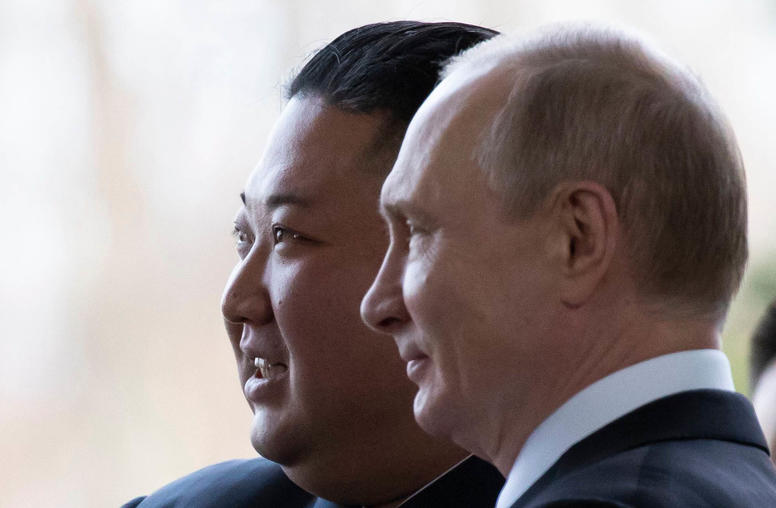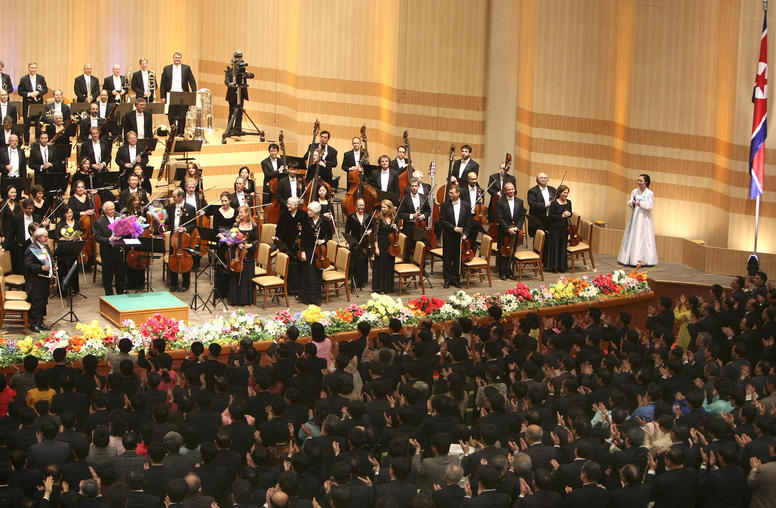 North Korea
North Korea
For decades, North Korea’s provocative behavior and pursuit of nuclear weapons have threatened peace and stability in Northeast Asia. Various strategies to address the problem have delayed, but not ended, North Korea’s nuclear program. In the face of international condemnation, North Korea’s insistence on keeping its nuclear weapons has led to a diplomatic stalemate and the need for creative solutions to prevent a crisis. The U.S. Institute of Peace has supported efforts to strengthen peace and stability and prevent crisis on the Korean Peninsula. USIP collaborates with U.S. and regional experts, government officials, and diplomats to lead dialogues and conduct research exploring strategies for enhancing diplomacy, avoiding conflict, and managing crises related to North Korea.
Learn more in USIP’s fact sheet on The Current Situation in North Korea.
Featured Publications

Increasing Information Access for the North Korean People
In recent years, North Korea has become more repressive, more impoverished and more allergic to the outside world. Already turning inward after the failure of diplomatic efforts in 2019, the North Korean government isolated itself further amid the global COVID-19 pandemic. North Korea has learned to operate, and Kim Jong Un has learned to rule, with greater levels of self-isolation than aggressive international sanctions regimes could ever hope to impose. Given North Korea’s current mode of rejecting even humanitarian assistance and its recent turn toward Russia, the chances for diplomatic breakthroughs with Pyongyang look like a wishful long-term hope at best.

It’s Time to Resolve the Korean War
The greatest challenge to peaceful coexistence between North Korea and the United States is the technical state of war between the two countries. The United States and the Soviet Union may have been at ideological loggerheads, used proxies in regional conflicts and come close to direct superpower blows — but they were not in a state of war. Resolution of the Korean War should be set as a stated U.S. policy objective. This is a necessary Step Zero on the road to peaceful coexistence with North Korea today and could reduce the risk of deliberate or accidental conflict, nuclear or otherwise.

Three Conditions for Successful Engagement with North Korea
The September 13, 2023, meeting between Vladimir Putin and Kim Jong Un in Russia’s Amur Oblast marked a significant crippling of the decades-long U.S. pressure-based approach toward North Korea. The strategy of isolating and pressuring North Korea through United Nations Security Council resolutions to compel its nuclear disarmament in exchange for providing normalized relations, economic aid and sanctions relief may or may not ever have been a winning strategy, but now is no longer viable. The strategy required cooperation among the United States, South Korea, China and Russia, but this now seems a distant prospect.
Current Projects

Pursuing Peaceful Coexistence with North Korea: An Essay Series
This ongoing USIP essays series explores how the countries involved in the Korean Peninsula can tangibly and realistically reduce risks and improve relations within a reality where North Korea possesses nuclear weapons and will not denuclearize in the foreseeable future. In other words, how can the United States and South Korea peacefully coexist with a nuclear North Korea?